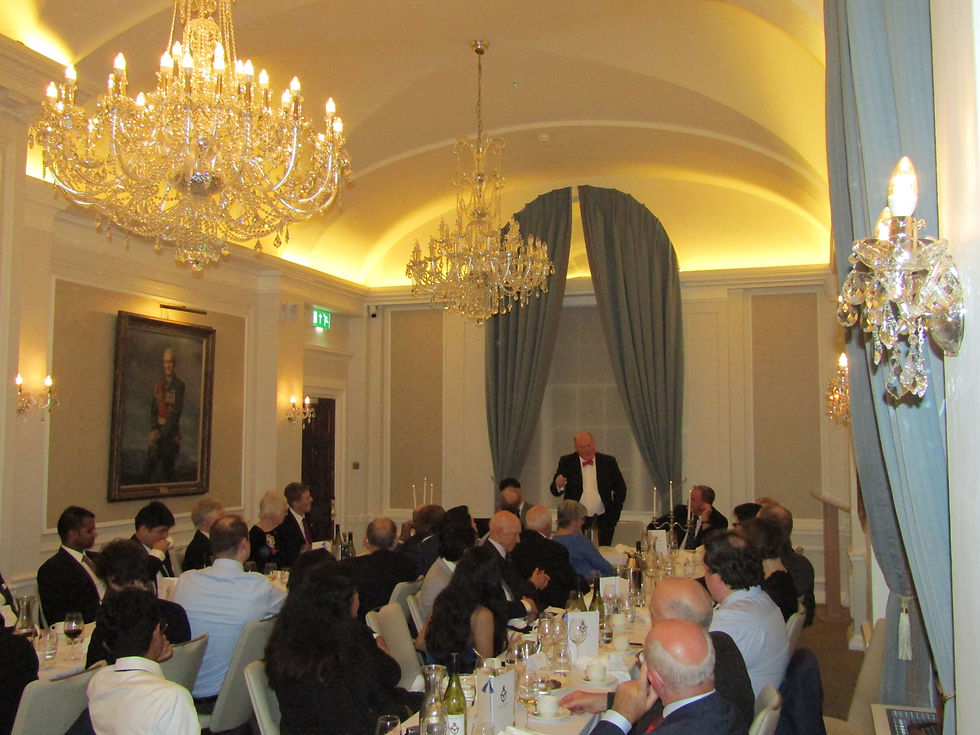What happened to democracy? Six questions on the past year at Slems
- Esperanza Hughes-Salinas
- Jul 5, 2025
- 3 min read
I am amazed by human resilience - and the resilience of ideas. In the past few years there have been a significant number of curveballs directed towards St Anselm Hall students, but they keep pushing through. Encouraging proof that where there’s a will, there’s a way!
Where's the vote?
One of the main difficulties the students (and the Association) have had to grapple with has been the de-democratisation (á la Levitsky and Ziblatt*) of the Hall’s student representative body. In my day, this body was known as the Junior Common Room Committee, and its members were elected by student vote in the Open JCR after dinner. Students could see democracy in action, participate in it, and appreciate its value. As a political scientist, I treasure that time for teaching me so much about the democratic process. Moreover, I would never have got my first job, and then into my Master’s, without being able to talk about my experience of that process.
Unfortunately, as our global news outlets remind us daily, some believe democracy to be inadequate for providing for the wellbeing of citizens - or in this case, residents. In a unilateral change delivered by the University of Manchester, students are now appointed by ResLife as accommodation reps and any events the students organise are under the remit of ResLife. Throughout this year's edition of Aosta you will see references to ‘accommodation reps/event organisers’ (formerly JCR committee members) and ‘lead event organiser/lead accommodation rep’ (formerly JCR President). Translate this as you wish!
Where's the voice?
One of the strengths of Slems (if not its major strength), is its sense of continuity - which in turn underpins its well-developed communal ethos. I’ve spoken to many students about the new system and there is enthusiasm for retaining the former democratic processes and titles. However, a nervousness exists about expressing these ‘revolutionary’ views. If this is indeed the case, it seems we have passed into a second feature described by Levitsky and Ziblatt: censorship.
Where's the money?
Another issue the students have struggled with is finance. In a keen example of shrinkflation, the University has deemed it sensible to cut the budget for residential events to £10 per student. In other words, 3.5 rides on the Stagecoach bus into town per year. If I recall correctly, in my day we had over £50 per student (and it may have been more!)
Luckily, the students know that the Association is ready and willing to continue nurturing a vibrant communal atmosphere with donations. We made it possible for this year’s students to have the traditional annual Easter Ball, thanks to generous alumni.
Where's the training?
Also vital in developing a sense of community and a shared responsibility at Slems was the running of the Hall bar. At the Summer Reunion the year after I graduated, I proudly wrote the names of everyone in my bar team on its wall. How amazing to have been taught how to manage a proper business and its finances, and deal with problems sensibly and appropriately when they arose - and as a student! We had a dedicated tutor whose role was to support the bar team and provide a guiding hand, but the students did most of the work. I cannot think of a single person saying it was anything but a positive experience - it enlightened, it was fun, and sadly is no more. A disappointing loss to Hall life.
Where's the community?
The ‘student experience’ is more than living in cookie-cutter accommodation. Diverse people need diverse opportunities for development. This is true in my practice in global health and international development, and it is true on the ground in Slems. Today, the students show their resilience by hosting fantastic events for all, collaborating with us at the Association, and working with the Chaplain (I myself went to a service where Away In A Manger was played on electric guitar and sung by over 40 students!) As you will see from the contents of Aosta this year, the student community is nurturing and mutually supportive.
Where's the lesson?
The University of Manchester should take heed from its own students: creating self-responsible communities that prepare young adults for the many challenges in the lives ahead of them is no bad thing. Halls can be different from one another.
My final note to you, alumni and students, is that while it may be that the University is acting counterintuitively, I see and know that the you are active, resilient and motivated. According to Levitsky and Ziblatt, this is indeed how keep ideas and democracy alive. Keep the St Anselm Hall shield aloft!
Esperanza Hughes-Salinas OA 2018-2022
Co-Chair
*Levitsky and Ziblatt wrote the fantastic How Democracies Die




Comments